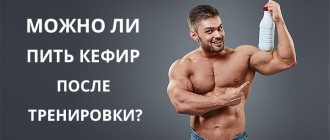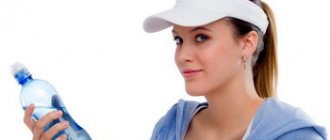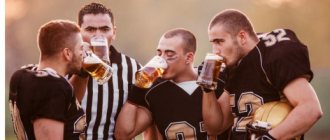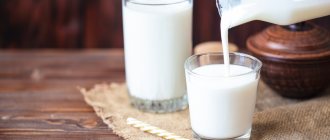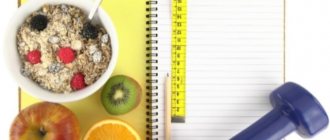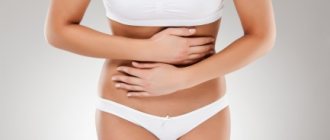Sport
During intense exercise, the body loses a large amount of fluid as a result of active sweating, reducing blood volume, which is important for receiving oxygen to muscles and organs, and the supply of electrolytes necessary for muscle contraction.
Rehydration plays a huge role in the body's recovery after exercise. And here the natural question arises: what should you drink after training so as not to harm the body?
In our article we will look at what drinks you should not drink after a workout and why.
General recommendations for carbohydrate and protein intake
Before we get into specific nutrient intake recommendations (protein, fat, and carbohydrates) post-workout, it is important to emphasize that in order to achieve your goals, you must first consume adequate total amounts of protein, fat, and carbohydrates per day. After all, for example, if you consume the recommended amount of carbohydrates immediately after training, but do not get the total daily amount of this nutrient adequate to your activity level and goals, your efforts will not pay dividends.
Table of daily carbohydrate needs
As you can see from the table, the American College of Sports Medicine (ACSM) provides general recommendations for athletes, while the International Society of Sports Nutrition (ISSN) gives more specific figures for the amount of carbohydrate intake - depending on the frequency, duration and intensity of training. However, the International Olympic Committee (IOC) provides even more specific figures, distinguishing carbohydrate needs depending on the type of training.
Daily protein requirements
The ACSM recommends consuming 1.2-1.4 g of protein per kg of body weight for endurance trainees and 1.6-1.7 g of protein for resistance trainers. At the same time, sports organizations such as ISSN and NASM (National Academy of Sports Medicine) recommend consuming more protein for physically active people - up to 2 grams per 1 kg of weight. We remind you that 3-4 fitness workouts per week is an average level of activity, which means you need to eat no more than 1.7 g of protein per kg of body weight.
Sports and water
At the same time, considering different sports, we will encounter various consequences that develop in the absence of water. Of course, our recommendation remains unchanged - you need to drink water not only after, but also during training. However, it is worth taking into account some nuances specific to specific sports.
| Kind of sport | Is it possible to drink water | Recommendations and explanations |
| Weightlifting | You need to drink water to restore the water-salt balance. | During training or competition, the body becomes severely dehydrated, which impairs the functioning of most organs and prevents the rate of catabolic reactions from being reduced. In this case, water is needed, first of all, to stimulate anabolic weights and improve athletic performance in general. |
| Thai boxing | It is strictly not recommended to drink water after sparring, i.e. after training. Even between rounds, athletes only wet their lips and mouthguard. | During sparring, an athlete receives many different mechanical injuries. Including taking several hits to the kidneys. As a result, additional liquid will only increase pressure, which will provoke internal bleeding in hematomas, and organs working in emergency mode may be subject to dysfunction due to mechanical stress when drinking water. |
| Sprint run | You need to drink water to restore the water-salt balance. | The body becomes severely dehydrated, which impairs the functioning of most organs and prevents the rate of catabolic reactions from being reduced. In this case, water is needed, first of all, to stimulate anabolic weights and improve athletic performance in general. |
| Powerlifting | You need to drink water to restore the water-salt balance. | The body becomes severely dehydrated, which impairs the functioning of most organs and prevents the rate of catabolic reactions from being reduced. In this case, water is needed, first of all, to stimulate anabolic weights and improve athletic performance in general. |
| Marathon running | You need to drink water to restore the water-salt balance. | The body becomes severely dehydrated, which impairs the functioning of most organs and prevents the rate of catabolic reactions from being reduced. In this case, water is needed, first of all, to stimulate anabolic weights and improve athletic performance in general. |
| Athletics | You need to drink water to restore the water-salt balance. | The body becomes severely dehydrated, which impairs the functioning of most organs and prevents the rate of catabolic reactions from being reduced. In this case, water is needed, first of all, to stimulate anabolic weights and improve athletic performance in general. |
| Crossfit | You need to drink water to restore the water-salt balance. | The body becomes severely dehydrated, which impairs the functioning of most organs and prevents the rate of catabolic reactions from being reduced. In this case, water is needed, first of all, to stimulate anabolic weights and improve athletic performance in general. |
| Kickboxing | It is strictly not recommended to drink water after sparring, i.e. after training. Even between rounds, athletes only wet their lips and mouthguard. | During sparring, an athlete receives many different mechanical injuries. Including taking several hits to the kidneys. As a result, additional liquid will only increase pressure, which will provoke internal bleeding in hematomas, and organs working in emergency mode may be subject to dysfunction due to mechanical stress when drinking water. |
| Boxing | It is strictly not recommended to drink water after sparring, i.e. after training. Even between rounds, athletes only wet their lips and mouthguard. | During sparring, an athlete receives many different mechanical injuries. Including taking several hits to the kidneys. As a result, additional liquid will only increase pressure, which will provoke internal bleeding in hematomas, and organs working in emergency mode may be subject to dysfunction due to mechanical stress when drinking water. |
| Aerobics | You need to drink water to restore the water-salt balance. | The body becomes severely dehydrated, which impairs the functioning of most organs and prevents the rate of catabolic reactions from being reduced. In this case, water is needed, first of all, to stimulate anabolic weights and improve athletic performance in general. |
| MMA | It is strictly not recommended to drink water after sparring, i.e. after training. Even between rounds, athletes only wet their lips and mouthguard. | During sparring, an athlete receives many different mechanical injuries. Including taking several hits to the kidneys. As a result, additional liquid will only increase pressure, which will provoke internal bleeding in hematomas, and organs working in emergency mode may be subject to dysfunction due to mechanical stress when drinking water. |
Carbohydrate intake after exercise
To restore glycogen reserves as quickly as possible, ACSM, ISSN and IOM recommend consuming 1-1.5 g of carbohydrates per 1 kg of athlete’s body weight in the first 30 minutes after training. However, if 24-48 hours pass between training or sporting events, the carbohydrate timing strategy is not so important. After all, if within 24 hours a person has consumed the daily amount of carbohydrates adequate to his goals and activity level, glycogen reserves will be restored even without urgent consumption of carbohydrates immediately after training.

The fastest restoration of muscle glycogen stores is very important if a person trains or takes part in sports activities less than 8 hours apart. For example, an athlete who trains twice a day. In this case, to quickly restore energy reserves, ACSM, ISSN and IOC recommend consuming a portion of carbohydrates in the first 30 minutes after exercise, as well as every 2 hours for a 4-6 hour period, as indicated in the table below.
Recommendations for optimizing glycogen recovery from ACSM, ISSN and IOC

Certified nutritionist Marie Spano notes that for the fastest recovery of glycogen stores, immediately after exercise, you need to consume carbohydrates with a high glycemic index (for example, juice, baked goods).
The NSCA Sports Nutrition Guidelines note that both liquid and solid forms of carbohydrates provide identical results in terms of glycogen restoration. However, it is not recommended to consume large amounts of fructose after training, since this type of carbohydrate is associated with lower levels of glycogen recovery in muscles compared to other sources of “simple” carbohydrates.
Water after training for abdominal muscles
You should drink water even if you are not sweating, which is a signal of a severe decrease in hydration levels. The temperature of the drink is important; it should be at room temperature. After classes, you need to restore your breathing, sit in a calm environment and drink 200 ml of non-carbonated mineral water for five minutes. The sips should be small. Before swallowing water, you should keep it in your mouth for some time for better absorption and replenishment of water balance.
30-40 minutes after finishing your abdominal workout, you should prepare a protein shake. It can be replaced with milk or a light protein snack. Properly organized nutrition and fluid intake will give health and youth to the cells of the body. This means that you will have not only strong abdominal muscles, but also velvety skin.
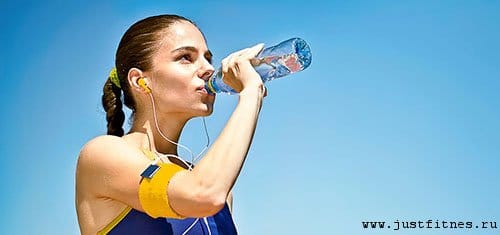
Protein intake after exercise
Experts from the ACSM, ISSN, and IOM agree that consuming approximately 20 grams of protein along with carbohydrates within the first 30 minutes after exercise optimizes recovery. It is noted that the use of sports supplements in this case is not justified, because these nutrient needs can be met without problems through the consumption of regular food. To optimize recovery after training, the International Society of Sports Nutrition recommends adding a serving of protein to carbohydrates at a rate of 0.2-0.5 g/kg body weight.

Experts from the International Olympic Committee recommend consuming 20-25 g of protein immediately after training. The preferred post-workout form of protein for IOM is low-fat milk. Experts from the NSCA note that after training it is necessary to give preference to dairy products, as well as eggs. The NSCA Sports Nutrition Guidelines also indicate that increased glycogen resynthesis (as well as protein synthesis) occurs as a result of co-consuming protein with carbohydrates. It is noted that the total amount of carbohydrates consumed is the main factor that contributes to the restoration of glycogen.
Isotonic drinks and natural juices
Isotonics are special cocktails consisting of carbohydrates and a complex of vitamins and minerals that help increase muscle mass. For example, there is chocolate milk that contains the optimal amount of all the necessary components. It significantly reduces the rate of muscle destruction, which has a beneficial effect on their subsequent growth.
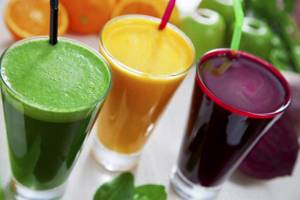
Chocolate milk bought in stores is in most cases of low quality, so it makes sense to make such a smoothie yourself.
An hour after training, you can also drink natural juices—natural juices, not nectars or juice-containing drinks. For example, cherry juice helps restore muscles, relieve swelling and inflammation, and reduce pain.

For any of the above cocktails, the question of how much to drink after a workout can be compared with the rules for drinking water: do not drink in one gulp, break the entire volume into small portions.
You can drink a protein shake before bed, but it is better not to consume carbohydrates at night - this will cause the accumulation of excess fat in the body. Do not drink carbonated drinks (including carbonated mineral water) or sweet liquids.

The question of how to properly drink fluid after physical activity is a very important one. You should pay special attention to it and never forget about the rules and recommendations - otherwise you can harm your body.
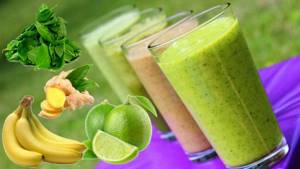
Restoration of water and electrolyte balance
Replenishing fluids and electrolytes is one of the most important tasks after exercise. The ACSM's position on fluid replenishment states that regular food intake with added salt plus a serving of water will be sufficient to replace fluid and salt losses. Consuming a small amount of salt will help retain fluid in the body and stimulate the feeling of thirst.
It is noted that, unlike water loss, salt loss during exercise is very difficult to assess. Moreover, it has been found that people lose different amounts of salt through sweat. Drinking sodium-containing sports drinks may be an option, although a regular salty meal you eat post-workout will easily replenish sodium loss.
One of the simplest ways to assess fluid loss during exercise is to weigh yourself before and after your training session. If a person needs to replenish fluid loss as quickly as possible and return his hydration status to normal, then within 4-6 hours after training he should drink approximately 1.5 liters of fluid for each kilogram of weight lost during the workout.
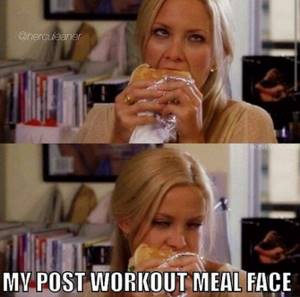
Experts from the NSCA note that evidence of a sufficient level of hydration is a copious amount of urine (urine) that is pale yellow in color. It should be borne in mind that if you take multivitamins, B vitamins, or eat beets, carrots or oranges, your urine will be darker, more saturated in color.
In general, the color of urine should be light yellow, like apple juice diluted with water. Darker, more concentrated urine color indicates dehydration. If your urine turns brown, consult a doctor immediately.
Processes occurring in the body during exercise
First you need to figure out what is happening at the chemical and physical level with the body and how to help it recover. Throughout the entire workout in the gym, carbohydrates provide our body with the necessary energy, but the amount of glycogen is limited. However, the faster its supply is replenished, the sooner the body will recover. On the other hand, after working in the gym, a lot of water is lost along with sweat, and with it minerals, which again reduces the body’s performance. As a result of exercise, muscles receive microtrauma, which means they need a certain amount of protein.
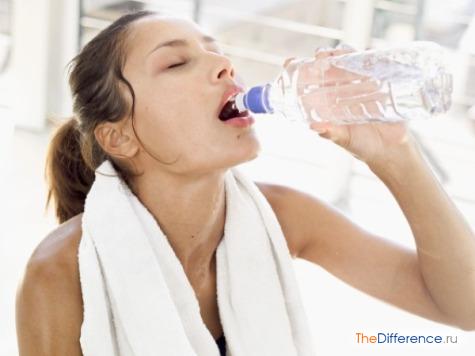
This is why an athlete needs a complex drink. Its task is to restore the level of glycogen, fluid and microelements, supply the body with material for muscle growth and, of course, quench thirst.
Practical recommendations
As mentioned above, even consuming the ideal ratio of macronutrients after training will not achieve the desired goal if the athlete does not receive the amount of calories in general and macronutrients in particular that correspond to his activity level and goals during the day.
On the other hand, if the trainee consumes the appropriate amount of nutrients for his goals during the day, applying the recommendations obtained in this material will optimize the recovery processes after training and achieve the best possible results.
It is important to emphasize that if you train twice a day for a short period of time (less than 8 hours), in this case you need to follow the recommendations to restore glycogen stores as quickly as possible.

Is it harmful to drink cold water?
Many sports people say that cool liquid stimulates the body and gives energy. In addition, there is a myth that drinking cold water after a workout speeds up weight loss. But this practice is too dangerous for the cardiovascular, circulatory systems and gastrointestinal tract.
The fact is that during training, and also some time after it, the blood thins and the blood vessels dilate. If you drink ice water, your body will experience severe stress. This will lead to a sharp narrowing of blood vessels and involuntary contraction of the muscles of the digestive system. Subsequently, drinking cold water during and after sports activities can lead to serious problems.
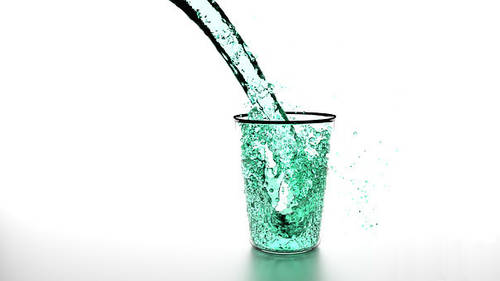
As for runners, in this case we can talk about a decrease in endurance. Therefore, if you are participating in a marathon, you should reconsider your attitude towards water during training. If you run for the purpose of losing weight solely for yourself, then you are allowed to drink water both during the workout and after it. When you return home, you can add honey or lemon juice to your drink.
After fitness training, you should drink only clean water - no hot coffee or tea, or honey drinks. If you drink protein, then the next portion of the fat-burning cocktail should be taken only 15–20 minutes after a sports activity.

Thanks to water, the normal functioning of all organs and systems is restored, fluid loss is replenished, and the body becomes slim. Of course, you shouldn't get too carried away. After all, its excess leads to edema, as well as much more serious problems - kidney dysfunction.

